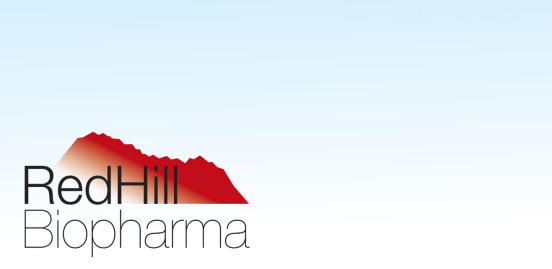RedHill Biopharma Ltd – ADR (NASDAQ:RDHL) just informed markets that it intends to put out topline data from its phase III trial of Bekinda in a gastroenteritis indication. Gastroenteritis is a potentially huge target market, and if the company can come out with some data that supports efficacy, there’s plenty of upside potential ahead of an NDA submission.
Here’s a look at the drug in question, and what we are looking for from the trial data.
Bekinda is a reformulation of a drug that is currently available (and widely used) called ondansetron. It’s on the WHO list of essential medicines, and is primarily used to tackle nausea and vomiting in cancer patients that have undergone chemotherapy. It’s also used in the indication in question, however, gastroenteritis. The current version is available as an oral medication, as an IV administration or a muscle injection. It’s what’s called an antiemetic, which is just the generic term used for drugs that are effective in these sorts of indications, and in this instance specifically, it’s a serotonin 5-HT3 receptor antagonist. We don’t need to go in to too much detail on the science of this one (there’s plenty of resources online available for those looking for some further clarity) but we will say that serotonin is thought to be responsible for the agitation of what are called vagal afferents. These are what are responsible for the initiation of the vomiting reflex. By antagonizing the serotonin 5-HT3 receptor, serotonin release is reduced, and there’s not as much vagal afferent stimulation. This, in turn, means the vomiting reflex isn’t activated.
Bekinda is an oral administration version of this particular antiemetic. But wait – if there’s already an oral generic available, why id RedHill developing its own? Well, the currently available version requires regular daily dosing (generally three times a day) in order to maintain efficacy across the waking period. RedHill is developing Bekinda as a once daily oral administration version. Patients sticking to a dosing regimen can be a big issue, and by bringing a once daily dosing version to market, RedHill is hoping it can compete for a decent potion of the gastroenteritis market.
It’s a risk, of course. When the current version was under patent protection, its high cost was generally regarded as the limiting factor behind its failure to expand past a chemotherapy indication. With this in mind, RedHill is going to have to price as closely as possible to the current generics pricing, as the once daily dosing isn’t all that much of an advantage. For some people it might be, but in a cost benefit analysis spread across a sample of the target population, this author is betting it’s not going to warrant a ten times price multiple.
If it can market it correctly, however, and price it right, there’s still plenty of potential revenues to be had.
So what are we looking for from the trial? The primary endpoint is the proportion of patients without further vomiting, without rescue medication, and who were not given intravenous hydration from 30 minutes post first dose until 24 hours post dose. There’s no comparison drug, only a placebo arm, so success will be measured by how well the active arm performs against the control. We don’t have the threshold figure, but chances are the company is looking for at least 50% improvement over placebo to qualify as statistically significant. There’s a chance an approval could come on a lower proportion, but if the drug is going to compete against a cheaper alternative, even with its dosing benefit, it’s going to to have to perform pretty well.
Safety and tolerability shouldn’t be an issue, as its extended release, so toxicity shouldn’t really be affected by the higher than standard dose a one-time pill requires.
What about timeframes? As mentioned, the company is looking to serve up topline before the year draws to a close. If we see efficacy, we’re probably looking at an NDA submission sometime during late Q1/Q2, which would slate early 2017 as a potential approval period. One to keep an eye on going forward, but keep in mind the cost/benefit and its impact on RedHill’s potential as things progress.
